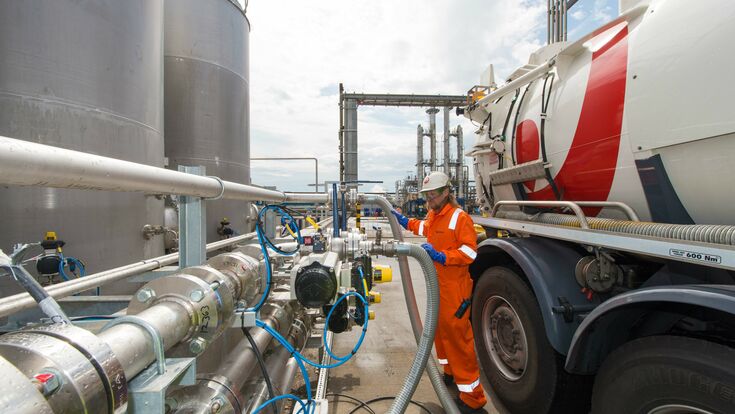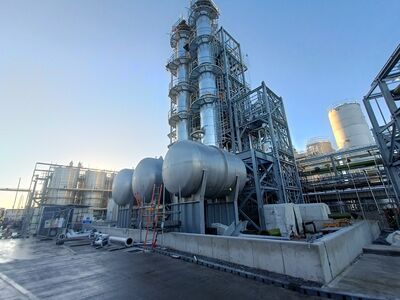Carbon emissions reduction : Veolia boosts solvent recycling to produce more sustainable products

Veolia, the UK's leading resource management company, has expanded solvent recovery capacity at its Garston site in Liverpool to 86,000 tonnes per year to meet the growing demand for more sustainable industrial products. Effective recycling of these used solvents, waste thinners and solvent-based paints, will create new products as an alternative to virgin solvents, allowing them to be reused in industries such as pharmaceuticals, semiconductors, paints, agrochemicals and cement manufacturing.
As part of Veolia's new GreenUP strategic plan, this solvent recovery process will also save an estimated 172,000 tonnes of CO2e of greenhouse gas emissions each year compared to virgin resources, equivalent to taking 78,000 diesel cars off the road each year.
Waste materials are processed at the site to regenerate them into high quality recycled products that can be reused. These products displace virgin materials in the supply chain. The plant uses various distillation technologies to separate the residues from the waste and then further separate the solvent mixtures into products suitable for industrial customers.
As well as producing products, the plant also produces several types of fuel. A distillate product fuel is used instead of natural gas to power the site's steam boilers, reducing gas energy requirements by 10,000 MWh per year, equivalent to the annual gas consumption of 1,000 households. Other by-products from the process will be sent to Veolia facilities to be processed into alternative fuels for use in the cement industry, helping to decarbonise the industry and reduce dependence on fossil fuels.
The increased processing capacity has been achieved by installing new distillation columns to separate the liquids and 17 tanks to store or transfer the solvents. Transport is handled by two new high throughput tanker loading bays, which manage the logistics of unloading waste for processing and loading the recycled solvents ready for delivery to customers.

Commenting on the new development, Nicola Henshaw, Managing Director Hazardous at Veolia UK said: "This latest expansion of our solvent treatment capabilities demonstrates our commitment to deliver high quality recycled products derived from advanced waste treatment. This highlights the effectiveness of our GreenUp strategy, and further strengthens our position as the world leader in hazardous waste treatment. By preserving resources, reducing reliance on virgin materials, and delivering sustainable products to support manufacturers, we can also create major carbon savings."
Veolia is the world leader in hazardous waste management, from collection and disposal to recycling and reuse. Supported by the Group's GreenUp strategy, which aims to make Veolia a leader in decarbonising, de-polluting and regenerating natural resources, the Group currently treats and recycles around 10 million tonnes of hazardous waste. This is done for more than 100,000 industrial, commercial and public authority customers through a network of more than 300 facilities on five continents.

